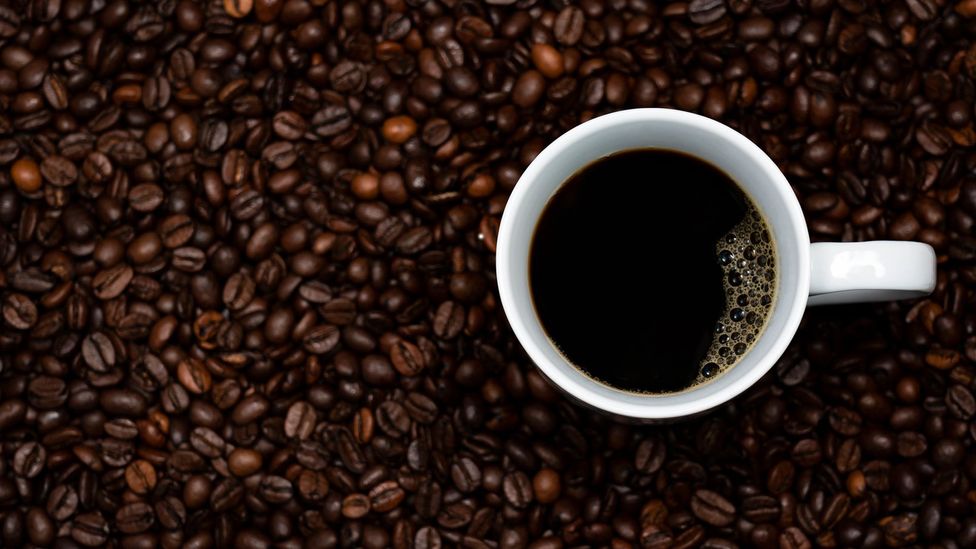

· By Joe Farafontoff
Tips to Adopt a Caffeine-Free Lifestyle
We've all experienced waking up groggy from a lack of sleep or poor-quality sleep, only to be confronted with a full day of obligations. It's intuitive to reach for a cup of coffee for a pick-me-up. According to studies, 43 percent of Americans are "very likely" to drink caffeine daily to stay alert.
Also, new research suggests that your caffeine addiction may be inherited: Scientists recently discovered that individuals with certain gene variations drank about 40 milligrams more coffee per day — the equivalent of an 8-ounce can of Diet Coke — than people with other versions of the genes.
Caffeine, whether in coffee, tea, soda, or chocolate, improves alertness and can make you feel more awake by increasing adrenaline levels while decreasing the chemicals that promote sleep. Unfortunately, your morning coffee may sabotage your efforts to get a good night's sleep.
Recommended Amounts of Caffeine:
Moderate caffeine consumption is considered healthy, but even small daily amounts can become a crutch. For healthy adults, 400 milligrams per day—roughly four or five cups of coffee—is an amount that is not generally associated with harmful effects.
However, people differ significantly in terms of how sensitive they are to caffeine and how quickly they metabolize it. Caffeine sensitivity is increased by certain conditions and medications, including pregnancy. Breastfeeding mothers should also limit their caffeine intake. As always, discuss your caffeine consumption with your doctor.
4 Signs You Need a Caffeine Detox:
These are a few indicators that it's time to detox (or quit altogether).
First, you notice a shift in your sleep patterns. It is difficult to fall asleep, or your sleep is restless.
Second, you wake up with headaches every morning. Once you become addicted to caffeine, your body will expect it regularly. Your blood vessels dilate while your body waits. This could cause brain irritation, activating pain centers and resulting in pounding headaches.
Third, you experience anxiety or panic attacks after consuming caffeine.
Fourth, you have muscle spasms. Dehydration may occur if you consume caffeine regularly and your muscles spasm. It could be due to too much caffeine if you notice your calves, hamstrings, or thighs spasming throughout the day. Fortunately, learning to quit caffeine (even for a short time) can be highly beneficial.
Caffeine as a Stimulant:
Caffeine gives you a jolt almost immediately, but it stays in your system for hours. It takes six hours for half of the caffeine consumed to leave the body. Any caffeine-containing beverage or food consumed after noon can cause sleep problems.
Caffeine-related sleep problems may occur in individuals who consume more than 250 mg of caffeine per day (three eight-ounce cups of coffee), which is considered a moderate consumption. Caffeine overdose symptoms include insomnia, anxiety, irritability, headaches, rapid heartbeat, and nervousness.
There are two approaches to reducing your caffeine dependence. The first is straightforward: consume less of it. The second approach is more holistic.
10 Tips to Adopt a Caffeine-Free Life:
1. Understand your ingredients
Examine the ingredients of foods and beverages and keep an eye out for caffeine. Many sodas and energy drinks contain caffeine.
2. Reduce your caffeine consumption gradually
Caffeine withdrawal should be made in stages. Caffeine is highly addictive. If you decrease one-third of your morning coffee today, wait three days, and then decrease by another third, you'll be halfway there. If you want to give it up completely, take it slowly. This gradual reduction will alleviate caffeine withdrawal symptoms such as headaches, jitteriness, irritability, and nausea.
3. Experiment with something new
Consider switching from coffee to tea in the morning. Herbal teas are fine, but green tea is highly beneficial.
4. Consider decaf
Change to decaffeinated coffee or soda, alternative coffee drinks, or, even better, water or fruit juices.
5. Dilute caffeinated beverages with water
These beverages will still taste good but contain less caffeine and are less likely to cause caffeine withdrawal symptoms.
6. Don't add to your caffeine addiction
Consider whether you need that extra coffee in the late morning. Skip it if the answer is no.
7. Consider a tea shortcut
Tea is healthier than coffee and caffeinated energy drinks, but tea should be brewed for a shorter period to reduce caffeine.
8. Swap a large coffee cup for a small
The medium and large Starbucks drinks each have two espresso shots, while the small has only one. Another word of warning: even sugary milkshake drinks like Frappuccinos contain caffeine. Request that it be made decaf.
9. Change it up
One cup of coffee should be replaced with one cup of herbal tea, or soda should be replaced with one can of caffeine-free soda or water.
10. Evaluate your pain reliever
Caffeine is found in many over-the-counter medications, particularly headache remedies and menstrual pain relievers. Check if your medications contain caffeine; if they do, try a different pain reliever.
It is certainly possible to survive and thrive without a daily caffeine fix by reducing caffeine consumption and getting a better night's sleep.
Shroof – The Nutritious Alternate to Coffee:
Since the best solution to living caffeine-free is slowly decreasing your intake, Shroof is the best start to your new and healthier lifestyle.
Containing only 1/7th of the caffeine content found in a regular cup of coffee, Shroof helps slowly reduce your caffeine intake while avoiding any withdrawal symptoms. Composed of ten organic ingredients, this magic blend is the ultimate to start your day.
